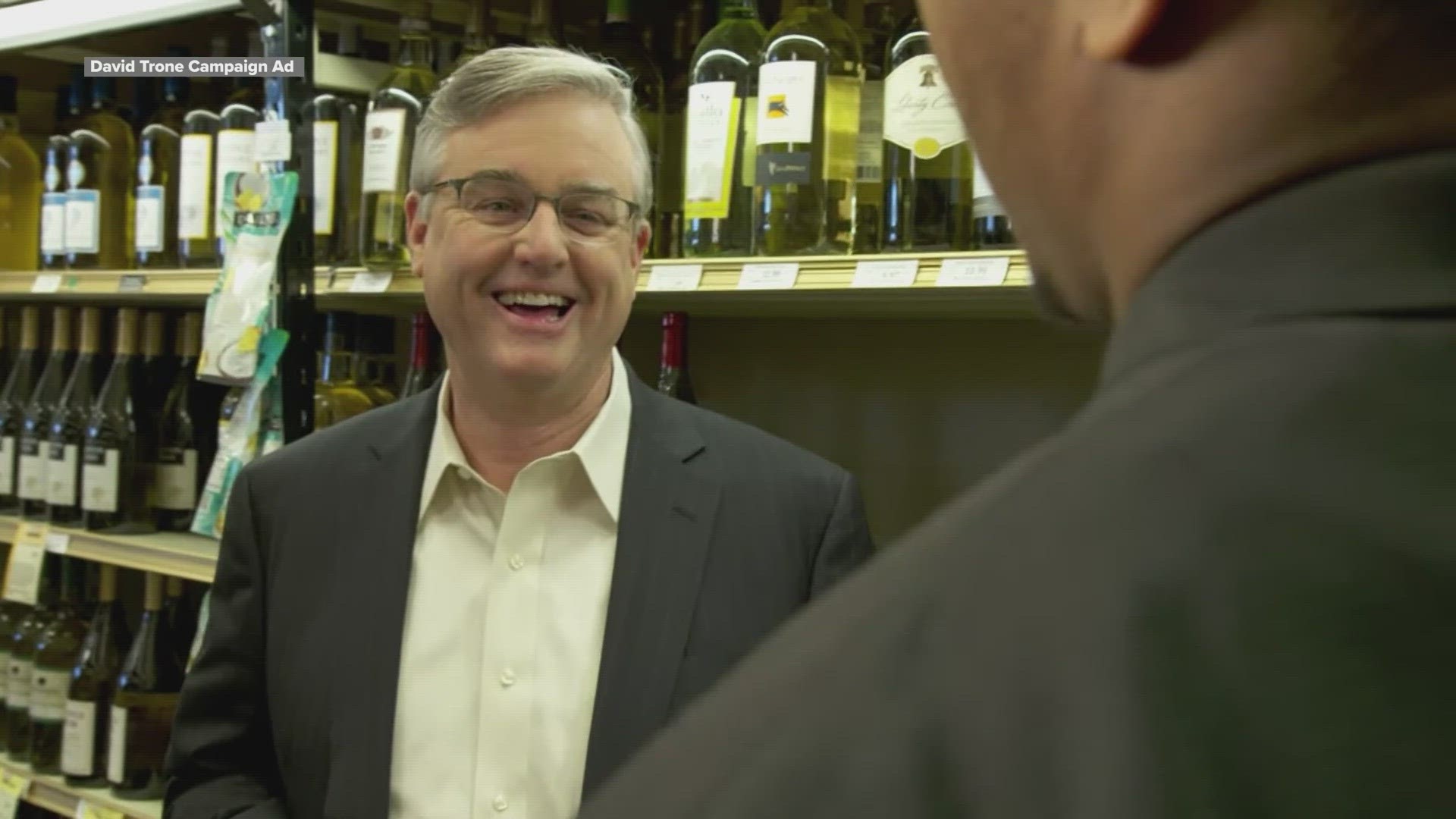PRINCE GEORGE'S COUNTY, Md. — How much does money matter in political campaigns? In Maryland’s democratic primary race for the U.S. Senate, we are going to find out.
David Trone’s run for the democratic nomination for Maryland’s open U.S. Senate seat has been fueled by a campaign war chest nearly ten times bigger than challenger Angela Alsobrooks.
According to a WUSA9 analysis of Federal Election Campaign Finance data from the time Trone announced his Senate run until the end of 2023 (the most recent numbers available), Trone spent more than $23.1 million on the primary.
Over that same time period, Alsobrooks spent roughly $2.4 million. Which is a difference of $20.7 million between the two candidates.
Trone, a Maryland Congressman who made his fortune as co-founder of the national liquor store chain Total Wine and More, is primarily self-funding his campaign. While Alsobrooks, who serves as Prince George's County Executive, is running primarily on grassroots campaign donations and a relatively small amount of funding from Political Action Committee’s or PAC’s.
“I think Marylanders are really savvy,” Alsobrooks said in an interview with WUSA9. “And they recognize that you should not be able to buy Senate seat.”
Trone’s campaign declined an interview, but wrote in a statement "David Trone is the only candidate in the race for U.S. Senate — and would be the only Senator — who refuses to accept contributions from PACs, lobbyists, and corporations. This gives him the independence to listen to the people of Maryland, not special interests.”
Outside of a campaign event in Mitchellville, Alsobrooks acknowledged the lopsided finances have impacted how she’s run her race, including a decision not to run statewide television ads until recently.
“Oh, absolutely,” Alsobrooks answered when asked if the financial disparity was behind her decision to hold back on media spending early in the campaign.
“You know, we didn't have the money to go up on air last year,” Alsobrooks said. “So we had to plan it and to be careful to make sure we're communicating at a time where people are listening and receiving the messages we've seen the results have been tremendous.”
Trone has been running TV ads since the fall. And campaign finance data shows he outspent Alsobrooks on media buys $15.8 dollars to $80,000 in 2023.
He’s also far outspent her on political consultants and polling, and Trone’s staff payroll was nearly three times larger than Alsobrooks in the most recent campaign finance data.
And it might be helping.
A recent Washington Post/University of Maryland Poll found Trone leading Alsobrooks 34% to 27% among registered Democrats in Maryland. But nearly four in 10 Democratic voters in the state remain undecided.
“I think it matters, especially in a primary because in a general election, most people are going to vote for their party's candidate no matter what,” said David Karol, Associate Professor in the University of Maryland Department of Government and Politics.
“They're both Democrats, and they are not very far apart on the issues. So, there are more voters who are up for grabs. And if one candidate has the resources to get his message out to a much greater extent than the other. It can certainly help.”
But money doesn’t always guarantee victory in elections.
According to nonprofit, non-partisan group Open Secrets, which studies campaign finance, self-funding candidates were some of the biggest losers in the 2022 election cycle, with only two out of the top 10 self-funding candidates winning.
One of them was David Trone, who won his seat in Congress. But all eight candidates who self-funded Senate runs, lost.
“It tells me that, you know, once voters see a candidate and find out about a candidate, then they're going to make their own decisions,” said Flack said Bredan Glavin, Deputy Research Director, Open Secrets. “And so, no matter how much money you have, if the voters don't warm up to you, then you're not going to get the votes.”
Whoever wins Maryland’s Democratic Senate nomination during the primary May 14 will likely be taking on another very well-funded candidate in November’s general election, Republican former Governor Larry Hogan.
But because Hogan only announced his Senate run in February, his first round of campaign finance data won’t be released until April 15.
That recent Washington Post/University of Maryland poll showed Hogan well ahead of both Trone and Alsobrooks in hypothetical head-to-head matchups. Maryland has not had a Republican U.S. Senator in 37 years.

